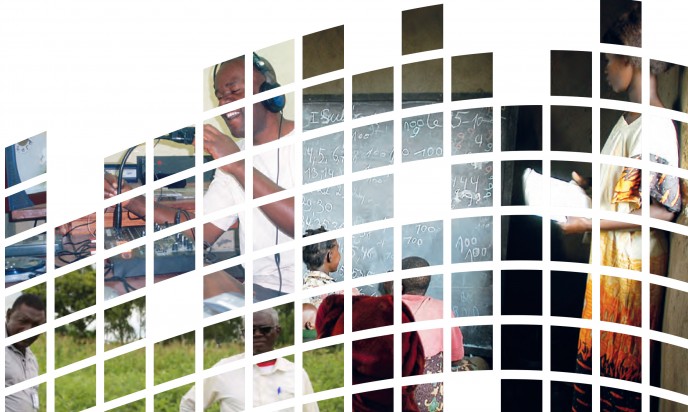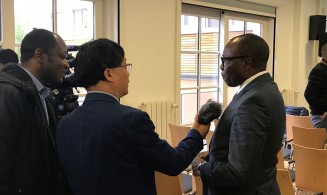

Adult learning and education in Africa: Increased participation is key
grale4pageheader.jpg

African Member States and the international community must do more to enhance participation in adult learning and education (ALE) across the continent; that is the principal message of a newly released report by the UNESCO Institute for Lifelong Learning (UIL).
The publication, Trends in Adult Learning and Education in Africa: Findings from the 4th Global Report on Adult Learning and Education, paints an uneven picture in terms of adult learning and education on the continent, particularly when it comes to participation in ALE opportunities. In fact, of the 25 African countries that provided information on participation, 24 per cent reported participation rates below 5 per cent, 20 per cent at between 5 and 10 per cent, 4 per cent at between 10 and 20 per cent, and 32 per cent at between 20 and 50 per cent. Only 20 per cent recorded participation rates higher than 50 per cent.
‘Rising participation in adult learning and education is pivotal for achieving all Sustainable Development Goals,’ affirms UNESCO Assistant Director-General for Education Stefania Giannini in her address for the publication’s online launch, which takes place on 15 and 16 April 2020. ‘This report shows that, in many countries, disadvantaged groups tend to participate less in adult learning and education. The lowest increases in participation are reported for all those with disabilities, older adults and the minority groups,’ she adds. Investing resources and developing effective policies that draw on best practice in the continent and around the world, particularly in reaching the least advantaged, is therefore essential.
Particularly with regard to funding, progress in ALE on the African continent is largely insufficient: of the 40 African countries that provided data for the report, 26 per cent reported spending less than 0.5 per cent of their education budget on ALE, while a further 18 per cent reported spending less than 1 per cent.
Poor data also constitute a major barrier to tackling inequalities in participation in ALE and addressing the needs of vulnerable groups, and more investment is needed in the collection and monitoring of data to support evidence-based policies that promote inclusive and equitable societies.
In her remarks for the webinar launch, which has been organized by UIL in cooperation with the African Union (AU), Sarah Anyang Agbor, the AU’s Commissioner for Human Resources, Science and Technology, underlines that ‘it is clear that further efforts are needed to make adult learning and education an effective instrument of social transformation in line with both the 2030 Agenda for Sustainable Development and Africa’s Agenda 2063.
‘Africa stands to benefit greatly from the development of the learning capacities of all its women and men, youth and adults,’ she continues. ‘I am confident that the findings of GRALE 4 will guide policy-makers on the continent to position learning and education for adults, starting with women, at the core of their efforts towards sustainable development. The challenges we face, globally and across Africa, demand nothing less.’
GRALE 4 makes clear that without a sea change in political will and resourcing, the potential contribution of adult learning and education to sustainable development in the African region will remain unrealized.
Download PowerPoint Presentation by David Atchoarena, UIL Director, with key results of the report
Date and time
15 April 2020, 14:00-15:20h CET (English)
Join via Skype https://meet.lync.com/unesco-org/s.shalaby/T2G3SHYR
16 April 2020, 14:00-15:20h CET (French)
Join via Skype https://meet.lync.com/unesco-org/s.shalaby/BIGGEYYU
No prior registration is necessary.









